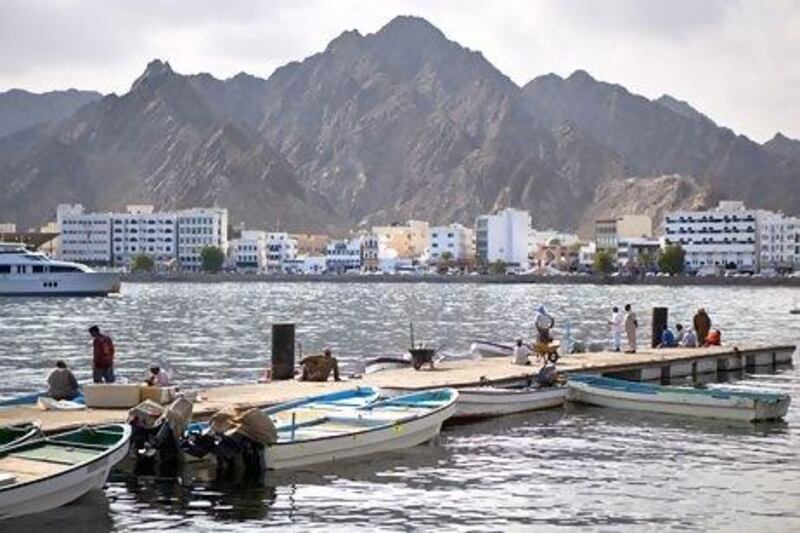The UAE has emerged as the biggest importer of Oman’s fish this year, boosting the profitability of fishing in its neighbouring country.
Oman exported 220,000 tonnes of fish in the first nine months of 2017, an increase of 2.3 per cent on the total exported in the same period last year, according to the National Centre for Statistics and Information (NCSI). Fifty five per cent of this year's exports headed to the UAE, compared with 33 per cent last year.
“I believe a big demand for fish is coming from tourism and major international events in the UAE,” such as fashion shows and the Gitex technology exhibition in Dubai, said Khalil Al Badi, general manager of Al Batnah Fishery Distributions.
“This is good for local fishermen because it has boosted their livelihood and will continue [to do so].”
________________
Read more:
Oman traditional boat builders see surge in demand amid low oil prices
________________
According to figures for this year from the NCSI, the income of 27 per cent of Oman’s 2.6 million population now comes from fishing — an increase of around 3 per cent from last year. The country’s 1,700 kilometre coastline is the longest in the Gulf, and coastal areas are sparsely populated. Most fishermen reside in the capital, Muscat, as well as Salalah, the eastern town of Sharqiyah or in the Batnah region.
Khamis Al Darbeen, a fisherman in Liwa in the Batnah region, said the UAE's proximity with Oman was a big advantage.
“It is only a few hours’ drive to the UAE border,” said the 46-year-old. “The UAE gets our fish the same day and, in our trade, fresh product is important.
“They don’t have to wait days to get the fish delivered to them, and I think these are the two main advantages we have.”
Another factor attracting the UAE market is that the cost to import fish is low, said Mr Badi.
“It is cheaper and less of a hassle to transport by land than air,” he said.
“Air freight needs extra documentation … and border inspection requires less paperwork.”
Ali Al Shizawi, a Sohar-based fisherman, said the increased demand of fish from the UAE had eased tension among Omani fishermen competing for the same local market.
“There are a lot of fishermen who are chasing the same fixed demand at home,” said the 33-year-old. “With the increasing UAE demand, I do not need to compete anymore with other suppliers in Oman.
“Demand for my catch has gone up by almost 30 per cent in the last three months, thanks to the extra demand from the UAE.”





